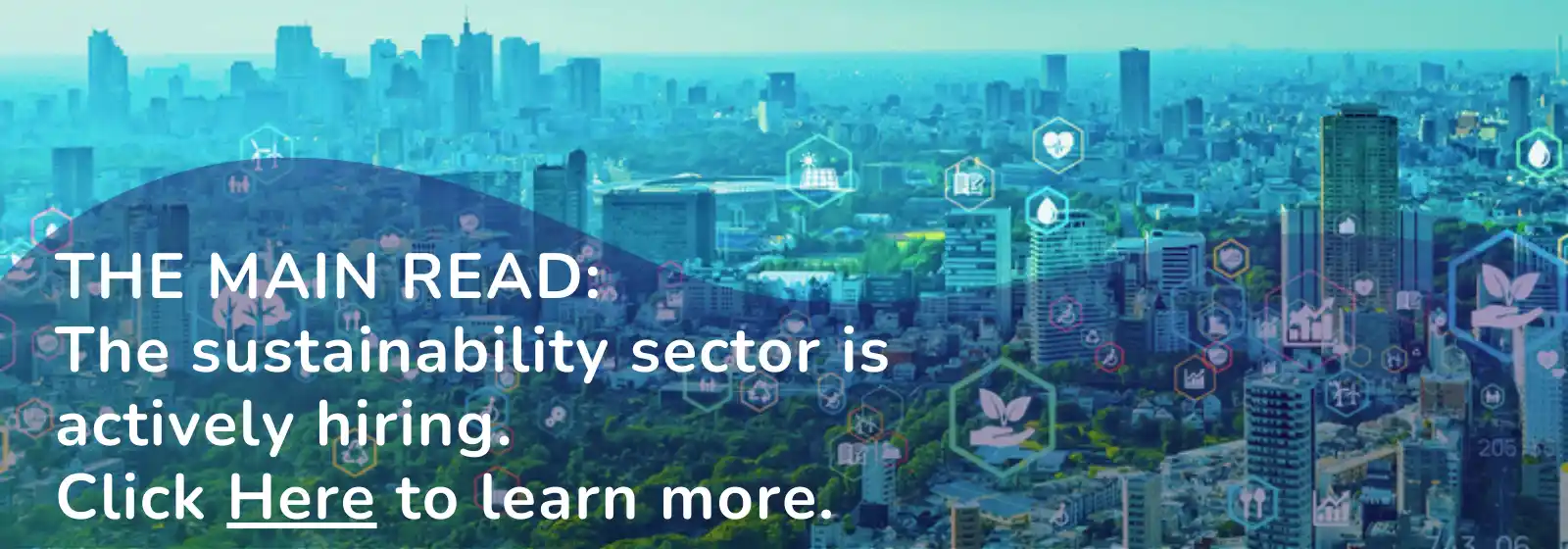Singapore is leading the charge toward a sustainable future with its forward-thinking approach to economic development and environmental responsibility. As the global focus on reducing greenhouse gas emissions intensifies, companies worldwide, including those in Singapore, have an incredible opportunity to make a real difference.
By embracing greener practices, Singaporean companies can contribute to a healthier planet and unlock new avenues for growth, innovation, and competitiveness. The journey to a greener economy may come with its challenges. Still, it presents a chance for businesses to reimagine the future in both profitable and environmentally conscious ways.
What are green skills, and why are they needed?

The Global Green Skills Report 2023 reveals a growing demand for green skills. Between 2022 and 2023, the number of job postings requiring at least one green skill increased by 22.4%. In Singapore, the concentration of green talent in the workforce is rising.
However, much like the rest of the world, there is still a significant gap between the supply and demand for green skills. Only one in eight workers globally possess green skills, indicating that most employees are not yet equipped to contribute effectively to a greener economy.
According to the United Nations Industrial Development Organization (UNIDO), the Green General Skill Index identifies four key work task groups crucial for green occupations:
1. Engineering and technical skills: Competence in designing, constructing, and assessing technology essential for eco-buildings, renewable energy design, and energy-saving R&D projects. Mastered by engineers and technicians.
2. Science skills: Broad knowledge of physics and biology, which is vital for innovation in value chains and the utility sector (water, sewage, electricity).
3. Operation management skills: Skills related to organisational changes for green activities, including life-cycle management and lean production. Essential for sales engineers, sustainability specialists, and transportation planners.
4. Monitoring skills: Skills for assessing compliance with technical and legal standards. Relevant for roles like environmental compliance inspectors, nuclear monitoring technicians, and emergency management directors.
For Singaporean companies to bridge this gap, they must adopt a skills-based approach to developing their workforce. Investing in green skills supports a company’s sustainability efforts and ensures competitiveness in an evolving marketplace where consumers, investors, and regulators increasingly favour environmentally conscious businesses.
The role of various industries in Singapore’s green transformation

Several industries in Singapore are pivotal in the transition towards a greener economy. The energy, transportation, and finance sectors are critical areas where changes can significantly impact Singapore’s overall carbon footprint. For instance, Singapore’s energy production and utilities sector is transitioning, with more workers moving towards renewable energy roles.
Despite the positive momentum, the report also indicated that more workers are still entering the fossil fuel industry than leaving it, highlighting the need for targeted efforts to further promote green jobs and skills in the renewable energy sector.
The transportation industry is another area ripe for change. Globally, a growing trend of automotive industry workers adding electric vehicle (EV) skills to their profiles indicates a shift toward greener practices.
While Singapore has made strides in promoting EVs and investing in supporting infrastructure, the journey towards reducing transportation-related emissions must continue. Companies in this sector can contribute by upskilling their workforce in green skills related to EVs and sustainable transport systems.
According to the report, Singapore’s finance sector is at the forefront of the global shift to sustainability, with its finance industry workforce boasting five times as many green skills as the global average. This demonstrates a promising change, but there remains room for improvement.
Singaporean finance companies can amplify this progress by increasing investments in green finance initiatives, supporting climate-related projects, and fostering a workforce proficient in sustainable finance practices.
Implementing green changes in the workplace

The transition to greener operations is not just about making surface-level changes; it begins with embedding sustainable practices deep within a company’s culture, policies, and everyday operations. By integrating green principles into company policies, businesses signal their commitment to sustainability, setting the tone for employees, stakeholders, and the industry.
Here are some strategies that Singapore companies can adopt to make this shift more effective and impactful:
1. Upskill the workforce
It is crucial to invest in training programs focused on green skills. From renewable energy knowledge to green finance practices, upskilling employees empowers them to contribute effectively to a company’s sustainability goals. Employers should identify key green skills relevant to their industry and design targeted reskilling programs.
2. Encourage green roles
Companies should promote roles that involve sustainability as a core focus. For example, roles like sustainability managers and energy specialists are increasingly gaining importance. Encouraging workers to transition into these roles by providing the necessary training and development opportunities is vital.
3. Adopt a skills-first hiring approach
Hiring based on specific green skills rather than traditional qualifications can widen the potential talent pool. This approach allows companies to bring in individuals who may not have conventional green job experience but possess adjacent skills that can be developed further.
4. Leverage policy support
The Singapore government promotes green initiatives like the Green Plan 2030. Companies should leverage government programs and incentives to support their green transition, including grants, training subsidies, and research and development support for sustainable practices.
Greener economy: A shared goal
For Singaporean companies, now is the perfect time to start building a workforce with the green skills needed to support this shift. Moving forward will involve collaboration between the public and private sectors, creative talent strategies, and a genuine commitment to sustainability.
Incorporating green practices helps tackle climate concerns and sets companies up for long-term success in a market that increasingly values sustainability. By thoughtfully upskilling their workforce and embracing sustainable practices, Singapore companies can contribute to a greener future while fostering growth and staying competitive.
















